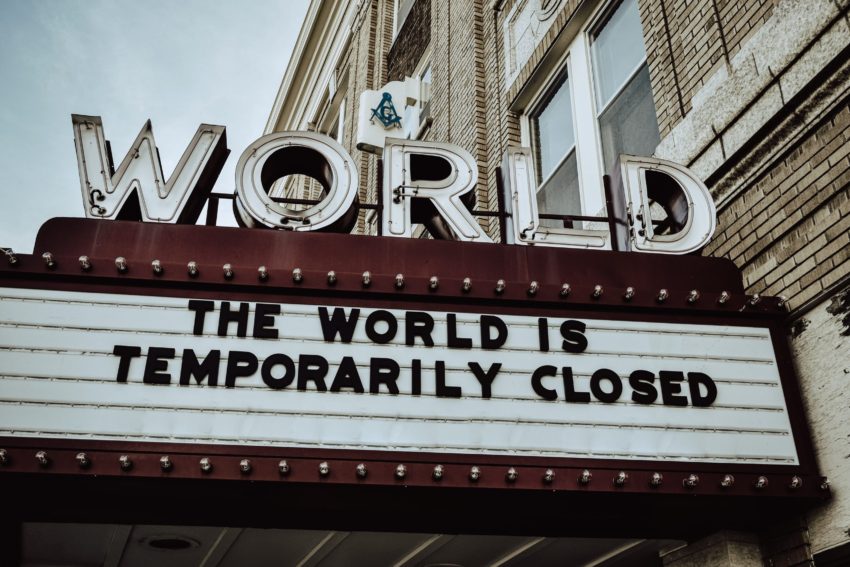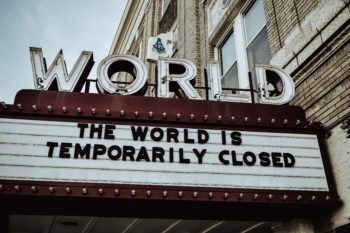
The UK is in lockdown. The world as we know it has changed since the beginning of March 2020, and AboutFace research with it. Our best laid plans of traveling the globe between March and August, interviewing surgical teams and patients, and people living with facial difference have been postponed in the figurative and literal face of the most extraordinary social and medical challenges caused by Covid-19 (Coronavirus).
Many of our research collaborators work in hospitals or are immunocompromised, meaning that they have a weakened immune system. This can be caused by conditions like cancer, AIDS and malnutrition, or by medicines and treatments like stem cell or organ transplants, which require the deliberate suppression of the immune system. For whatever reason, a weakened immune system means self-isolation, and the possibility (though not the inevitability), of loneliness – a subject I explore in a recent blog post for BMJ Medical Humanities.
We are grateful to our collaborators on the front line, trying to slow or halt the spread of the virus. And we are mindful of how challenging it is for immunosuppressed people to add the persistent fears of isolation from loved ones and unmet need to the challenges being dealt with on an everyday basis. Media framing of Covid-19 is emotive, and fear and anxiety are more prevalent than hope. The full impact of Covid-19 is expected to hit in the next two weeks in the UK (Italy and New York are setting disturbing precedents) and medical supplies are in doubt.
Here, as with other aspects of the pandemic, the history of medicine provides insights into how we frame, interpret and act upon hygiene, contagion and disease. I wrote a blog for the Foundation of Science and Technology about handwashing, gloves and coronavirus, drawing on the findings of a new book about the history of hospital infection, Germs and Governance, that I co-edited with Professors Anne Marie Rafferty and Marguerite Dupree (now in press with Manchester University Press).[1] That blog is available to read here.

Credit: Photo by Edwin Hooper on Unsplash
Rather than travelling, my team and I have taken the opportunity to consolidate our work over the past six months, to write, and to plan for the future. And we have some great news to share. Firstly, we are delighted to welcome our new Public Engagement and Events Officer, Sarah Hall, to the project, to develop our website and social media presence, as well as coordinating some exciting events over the next three years.
Secondly, we are delighted to have received Health Research Authority ethics approval for the AboutFace project, as well as University of York ethics committee approval. This means that we can embark on our programme of research throughout seven named UK sites. Over the coming years we will be working closely with six hospitals – Newcastle Hospitals NHS Foundation Trust, Leeds Teaching Hospitals NHS Foundation Trust, NHS Greater Glasgow and Clyde, Swansea Bay University Health Board, Manchester University NHS Foundation Trust, and the Royal Free London NHS Foundation Trust – and with NHS Blood and Transplant, the body responsible for organ donation and transplant across the UK. Our Research Protocol, which sets out the parameters and scope of the project, will shortly be available to download from our website. In addition to our UK collaborators, we are working with key partners across the United States and Europe.
To complement and enhance our academic Advisory Board, we have recruited a Lived Experience Advisory Panel (LEAP), composed of people with lived experience of facial difference. Chaired by James Partridge, the Director of Face Equality International, the panel currently includes Kathleen Bogart, Director of the Disability and Social Interaction Lab at Oregon State University; Amanda Bates, Patient Experience and Public Involvement Lead at the University of Kent; and Marc Crank, formerly Chief Executive of The Neuro Foundation (now Nerve Tumours UK). The Panel will grow as the project progresses, engaging with lived experience communities across the world. This breadth of expertise will ensure that we have a robust and inclusive approach to the questions we are asking about facial difference and transplantation.
To investigate public attitudes towards facial transplantation, we commissioned a YouGov survey of 2,000 people, and are currently writing up the results for publication. I wrote an article for The Lancet on the ‘before and after’ in face transplant images, which was published on 4 April 2020. And more articles are underway, exploring the history of face transplants in the UK and internationally – several of which are being written in collaboration with surgical colleagues and collaborators. We have a podcast series in the offing, and new film collaborations with Barry Gibb and others.
Now we are keen to hear from you. As we develop our website and social media strategy, we would love for you to share your reflections on the face in history and culture. You can follow us on Twitter @AboutFaceYork. We also encourage you to connect with our wider research community by following the Department of History at the University of York, @YorkHistoryDept and the Centre for Global Health Histories, @CGHH_York.
[1] Marguerite Dupree, Anne Marie Rafferty and Fay Bound Alberti (eds), Germs and Governance: the past, present and future of hospital infection prevention and control, Manchester University Press, 2020).
